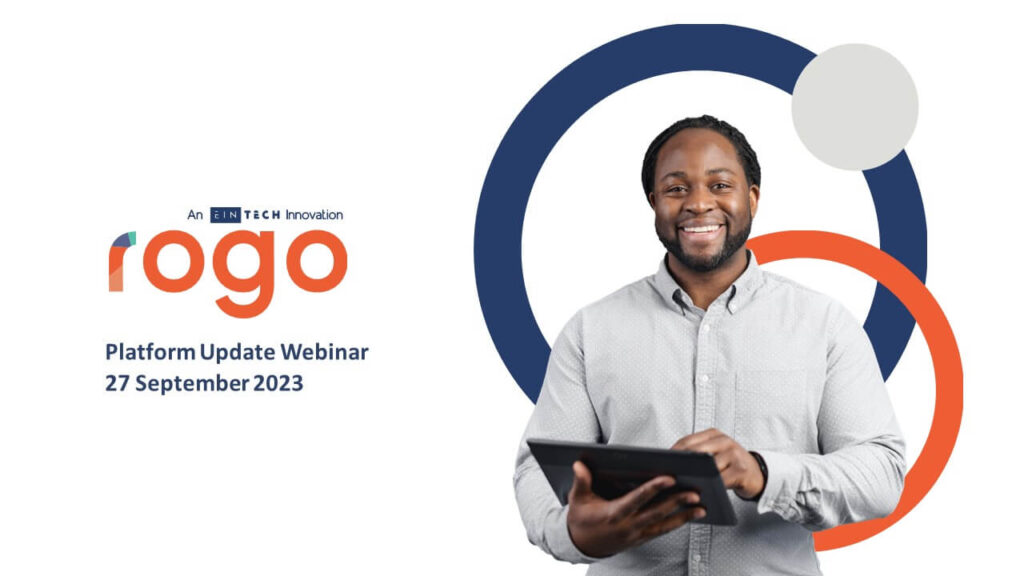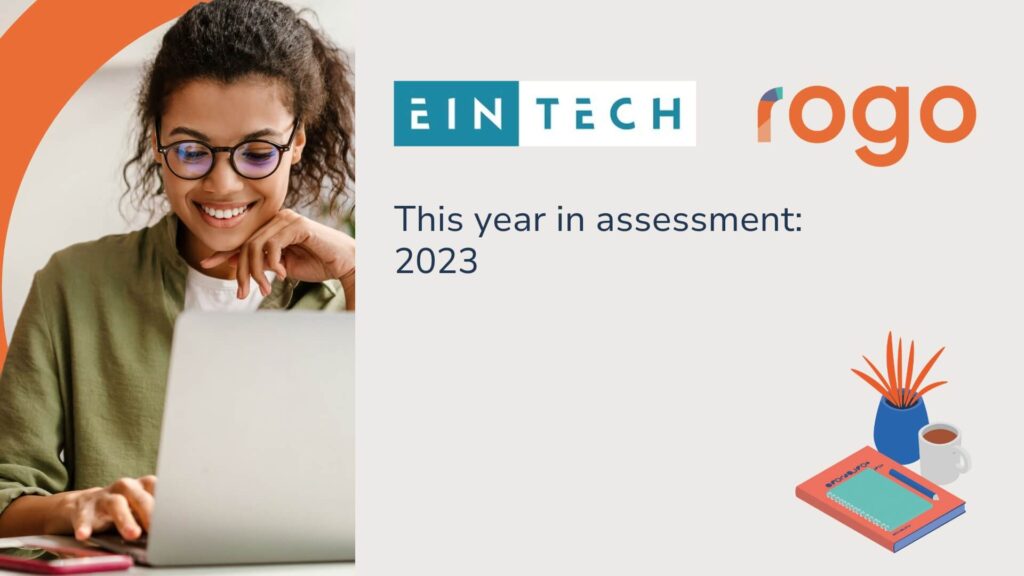As eLearning has become an increasingly popular (and more recently, essential) approach to education in the 21st century, it is important to recognise the fundamental enhancements that have been introduced.
Elliott Masie, who coined the term eLearning, said:
“People think of the ‘E’ in eLearning as ‘electronic’. And certainly, it’s electronic. But here’s a few more E’s – Everywhere learning, Everyday learning, Engaging learning, Evolving learning…’
At Rogo, we believe in another ‘E’- Everyone learning. We think you’ll agree, for a platform to be for everyone, it must be tailored to a person’s requirements – both students and learning providers.
A strong eAssessment strategy can be complemented by accommodating a high-functioning eLearning environment, with benefits including assistive-technology enabled features that traditional learning approaches cannot offer. Not only does this help us on a path towards equity for those with additional needs, these tools can be used to the advantage of all users.
Training providers and professional qualification bodies can also turn to eLearning to help increase students’ and candidates’ knowledge, skills and understanding in a cost-effective and time-efficient way. Recent figures from market research group Facts & Factors show that remote learning has positively impacted people’s professional development, and for US organisations alone, eLearning has led to an increase in income of 42%.
Read on to discover five key advantages of remote learning that can work in turn to enhance your eAssessment strategy.
Learning shouldn’t be a race; eLearning is self-paced
Remote learning can be approached in a non-linear manner. While it may be necessary to retain some chronological order when it comes to what is being learnt, the rate at which a student learns may vary.
There is evidence to show that eLearning can improve students’ productivity, with a recent survey from Oxford College showing retention rates of up to 60% – a drastic increase from around 8-10% in traditional face-to-face learning. Having more control over how much time is spent learning a specific module or topic allows your students to use their time more efficiently and be more productive, as they can quickly sail through familiar subjects and use the time saved on areas they have more difficulty grasping.
Remote learning is easily adaptable and self structured
Learning providers should always be looking to further optimise their programmes to improve retention and understanding. This is straightforward with eLearning software as integrated analytics allow your developers to use data and establish what works well for students, and where there are gaps.
Providing opportunities for students to undertake practice tests gives them the chance to see how they will perform under real test conditions, especially if those practice tests are structured in the exact same way that the high-stakes exam will be. Add to this the ability to provide detailed feedback for those questions that a candidate answers incorrectly and provide guidance on where to access additional learning, and you have an extremely powerful individualised learning tool.
Rogo enables candidates to create their own formative assessments, by selecting questions from specific subject areas. This means that they can create a practice test built up of questions from the areas where their knowledge is weakest.
As a training provider or testing organisation, Rogo provides you with the ability to design how your test questions and features are laid out. This helps ensure a more streamlined user experience, as well as adding personalised branding, colour schemes and fonts to integrate the platform into your own workspace and make practice tests reflect the real thing.
With the right tools, you can learn anywhere, anytime
Working professionals shouldn’t have to compromise the trajectory of their careers because of commitments outside of their professional life, but many have had to drop out of their professional development due to conflicting schedules, busy lives and other responsibilities. Although not by design, this has made professional development inaccessible to the many people who couldn’t attend face-to-face lessons on a rigid timetable.
However, eLearning has introduced an approach that can be tailored to the individual. Studying at any place and at any time makes the learning experience far more accessible and inclusive. This way, you can run a course from London with students in California, Tokyo and Athens – the only limits are the ones you choose.
Integration where you need it
Traditional learning involves a lot of time consuming practices. By integrating software systems and tools, businesses can unlock their employees’ potential at a pace never done before.
Through integration, providers can share data seamlessly with other platforms. This means that students can move from one learning environment to another without the frustration of having to log out and back into another system. For your team, it means that usage data can automatically transfer from one system to another – all student information can be collated from one place. At Rogo, we are partnered with a variety of commonly used Learning Management Systems (LMS) and other student/candidate management systems including Brightspace, Moodle, ACE360 and Quartz.
Don’t do it yourself: Get automated
Remote learning allows you to access features that work hard for you, so you can concentrate on giving the best possible learning experience to students. Let automated features and integrations perform mundane repetitive tasks for you, freeing up valuable time.
Rogo’s automation features include:
Nudges to help students acclimate to using online learning platforms and tools:
The automated nudges can be sent to students with low activity to help encourage them to use the extensive and varied tools available to help enhance learning. This can also help to keep students on track and minimise drop outs, as missing too much of a topic can quickly become overwhelming.
Automatic marking:
Loved by professional awarding bodies, this feature offers a customisable approach to marking formative assessments, allowing for manual, automated or semi-automated marking depending on the type of question and the tutor’s preference. Rogo can even automatically distribute the marked work and provide detailed feedback on responses.
Another benefit of Rogo’s marking function is that it enables assessors to give more in-depth and personalised notes on areas that might need them, such as long response questions, to give students maximum benefit from formative assessments.
In an increasingly digital landscape, it makes sense to make the most of what technology has to offer in order to optimise learning and provide fundamental enhancements that traditional approaches just can’t deliver. eLearning offers flexible self-paced learning, optimised progression and easily adaptable features, all designed to create a learning environment that is accessible and accommodating for all.
To learn more about eLearning with Rogo, get in touch.


